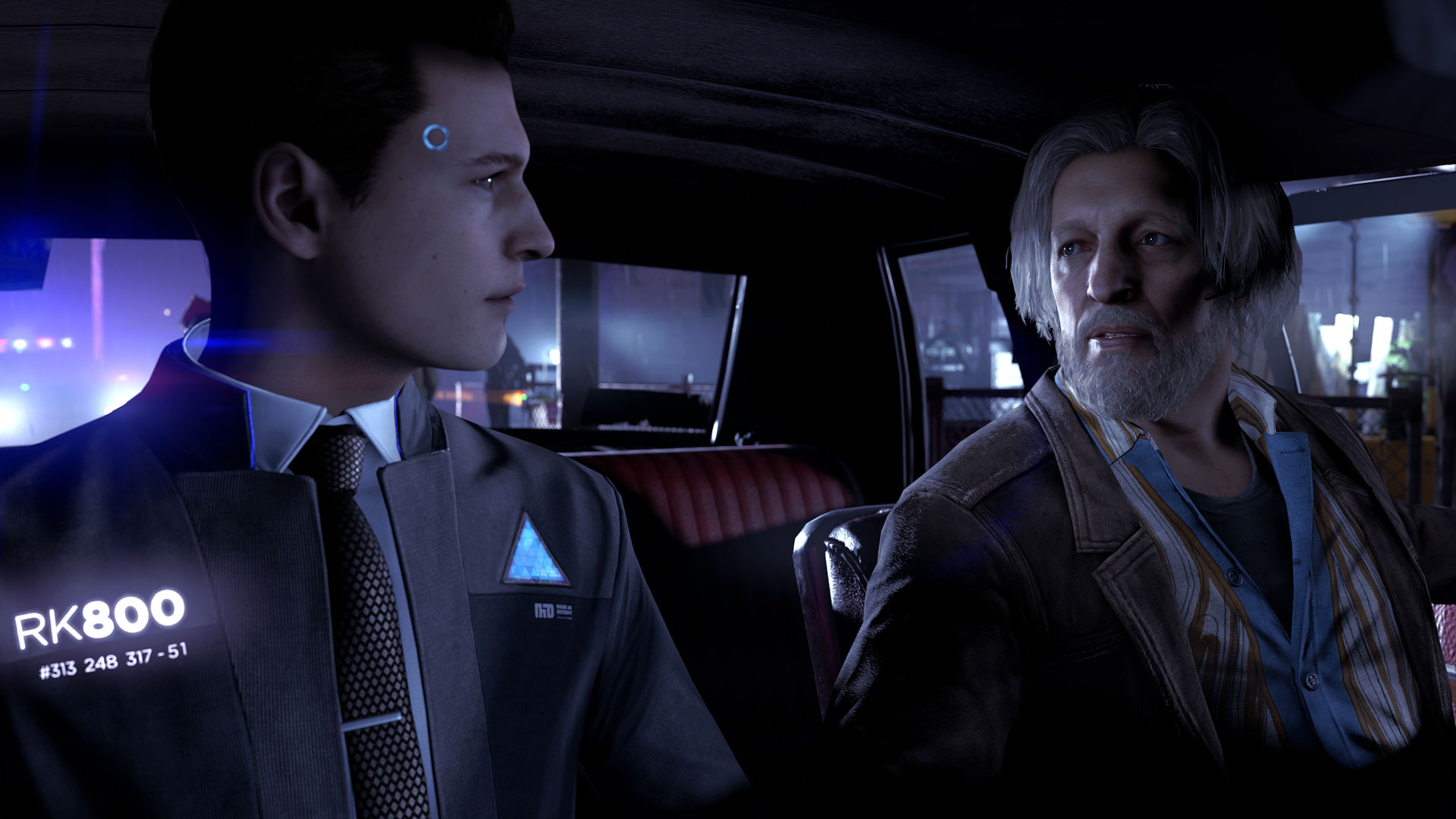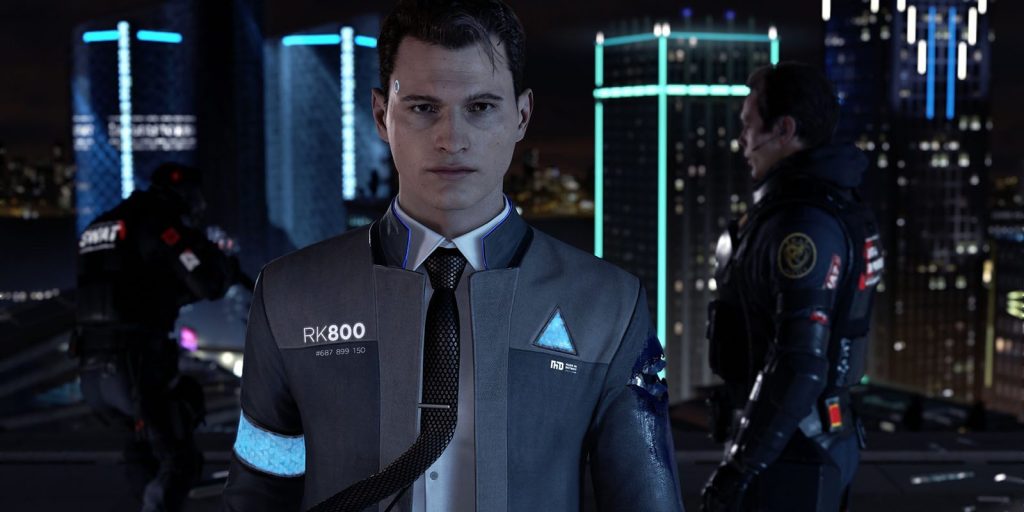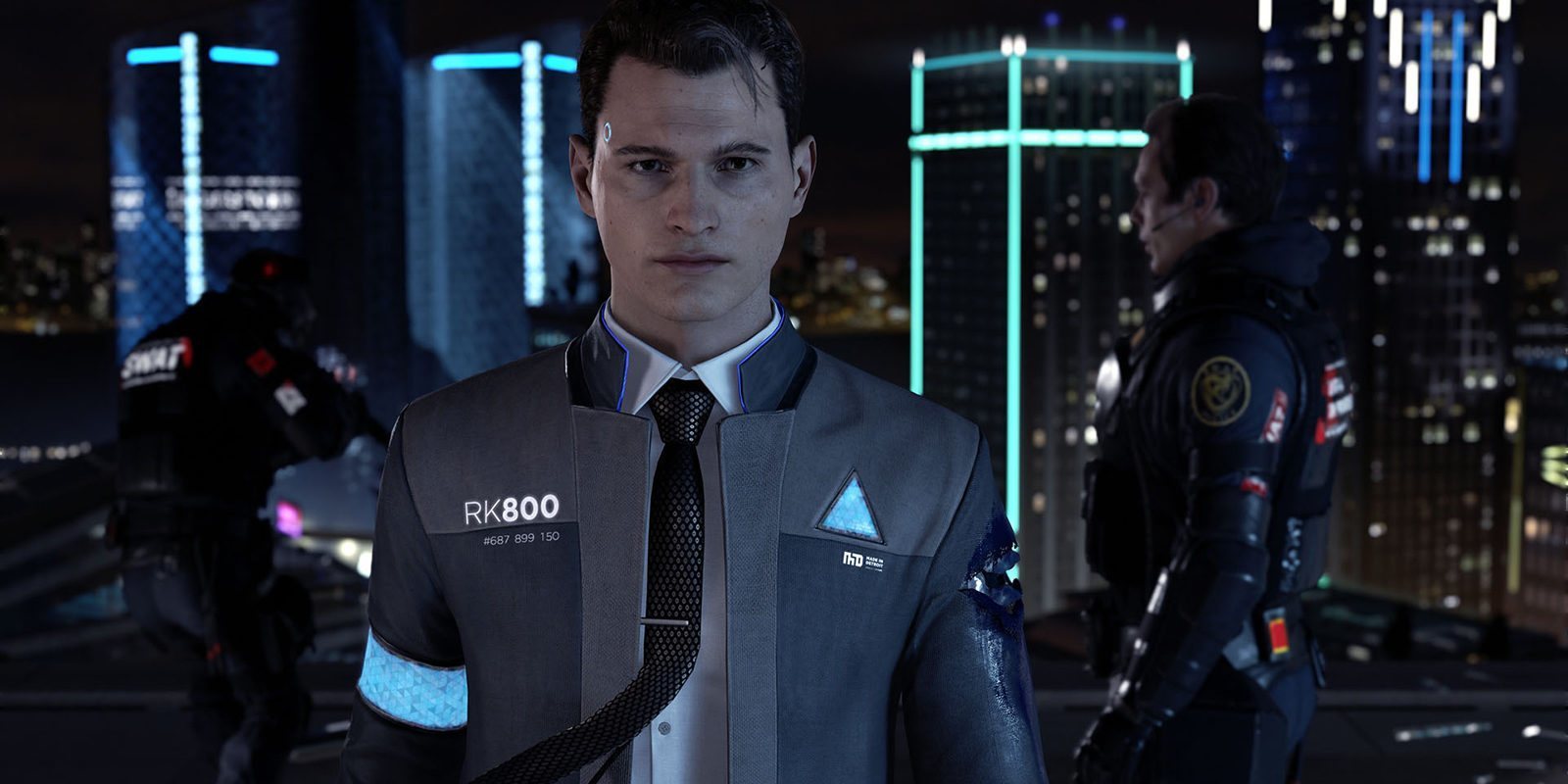Humans are bestowed free will to make choices, but no one ever told us that it comes with a dear and sometimes heavy price. Who would have guessed that this simple phrase could mean so much in Detroit: Become Human. Quantic Dream – the makers of Indigo’s Prophecy, Heavy Rain and Beyond Two Souls – have raised the bar for the interactive movie, action-adventure genre. I’m not so sure if a game of this quality can easily be replicated.

Platform Reviewed: PS4
Platforms Available: PS4
Developer: Quantic Dream
Publisher: Sony Interactive Entertainment
Release Date: May 25, 2018
MSRP: $59.99
This review is based on a review code provided by Sony Interactive Entertainment.
Set in 2038, this neo-noir thriller lets you play three remarkable characters in the city of Detroit which has now been taken over by a new god – technology. During this time, Detroit personnel and workforce have been replaced with Androids; these are machines who never age, contain infinite knowledge, and who have similar physical appearances to that of humans. Somewhere along the line, the Androids became more self-aware. This results in them deviating from their pre-determined roles and the ability to understand their newfound free will. These machines would then come to be known by the general populace as Deviants.
Are machines really capable of consciousness? The decision is yours to make as you tackle the game’s plot by making choices that you hopefully won’t regret.
This particular title has enough differences that separates it from others of the same genre. In some ways, how I felt playing Detroit: Become Human was opposite of how I felt when I played other games of a similar nature. The main gameplay consists of a branching decision tree where each path has little to no consequences – making the player feel more like a spectator as the ending felt too predetermined. Although I say all that, the vast amount of choices allowed me to appreciate and even hate every hard decision I had to make. The gameplay gives you that sense of control as every successful or failed quick time event can greatly affect the plot’s outcome. Whether or not you unlock a path that will be beneficial to the success of your mission will become vital information on every succeeding chapter of the game.
I love how there is continuity and that every choice you make affects not one, but all chapters. Much like every other interactive movie games, characters die permanently if you don’t make the right choices. However, that doesn’t mean it stops the progress of all the others; What it does is prevent you from knowing what could have been the deceased character’s storyline. Every time you finish a chapter, you will now be shown a flowchart that shows what routes you took. Some of these will be grayed – meaning there were certain things that you may have missed during those sections. In times of regret, you can always select the different chapters of each character and alter the choices you’ve made to reshape the outcome of your gameplay.

There are three Androids and one plot that connects all of them together. Every event you witness are all unraveling at the same time. The first Android’s story you take on is Connor’s – CyberLife’s highly enhanced detective prototype – as he’s tasked in figuring out why more and more Androids are becoming Deviants. He is a very determined character who’s willing to risk his life to complete every mission he’s tasked with. Be warned, there are certain choices in the game’s prologue that could prevent you from playing out his story in the succeeding chapters. I honestly wasn’t really fond of his character but as the game progressed, I quickly realized and admired his complex, tenacious character.
We then move over to Kara, a house slave to a scumbag of a husband who mentally and physically abuses their daughter Alice. After a beating which momentarily takes away her consciousness, she found the resolve to help her daughter escape the life she doesn’t deserve. She eventually manages to do so, but she soon realizes that the worst has yet to come for them both.
The we have Markus, an android tasked with the responsibility of caring for an old aged, successful painter. As we the two co-exist, Markus is treated as if here were the painter’s own son – with him being constantly told that he isn’t just a machine and that he is capable of his becoming his own character. But not all good things were meant to last as Markus soon loses everything in a situation where he becomes the leader of the Deviant Resistance.
Is it too good to be true? I found a couple of issues during my playthrough; one of them being an early scene where you play as Kara and fulfill household chores. There’s a particular segment where you’re tasked to clean plates, forcing you to swipe your touchpad depending on the direction the game shows you. There were also other similar sections, such as mopping bathroom floor, which requires the same set of actions. The problem here is that the touchpad was unresponsive to the point where Kara ceased all movement. Although it’s a minor problem, something like this can make even the most mediocre tasks feel as if they take too long to accomplish.
At some point in the game – where each character’s separate plots inevitably intertwine with one another – the game freezes for a couple of milliseconds before allowing you to play out another character’s storyline. That was enough to make me fear that an internal error may have occurred, meaning that I would have to restart my console and play through those segments all over again.
There was also this paritcular scene where all Androids are gathering up for Markus’ speech in an open area field. While his sub-leaders were easily identifiable, there were a couple of Androids positioned by the environment’s background where they all they all looked like silver mannequins stripped off of their hair and clothes – except maybe for one or two. Was that a bug or was it intentional? I say it was disturbing but ultimately it was insignifcant compared to camera rotating towards crowd to show the final moments of the choices you have made. At least here I was able to fully comprehend what I was seeing.

Detroit: Become Human is a game that allows me to feel genuine emotion. I had a very difficul time when it came to making certain decisions: Should I choose based on how I felt or should I follow what my characters would have wanted? Just about every dialouge option made me argue against myself as to what I had to pick. I was so invested in the gameplay that every decision tends to get harder and harder – with an outcome that is so unforgiving and sometimes gratifying.
This game is a twisted interpretation of an extreme reality: where segregation, racial discrimination, slavery and mental abuse still exists. I truly believe that a lot of people can identify themselves with each character at some point for their own reasons and the game shows us that one has to make the wrong decisions in order to get the job done. The algorithm in coming up with the intricate flowchart is a masterpiece on its own. So who says you can’t learn a thing or two from a video game? It even showed me how to become more human. Don’t you agree?







